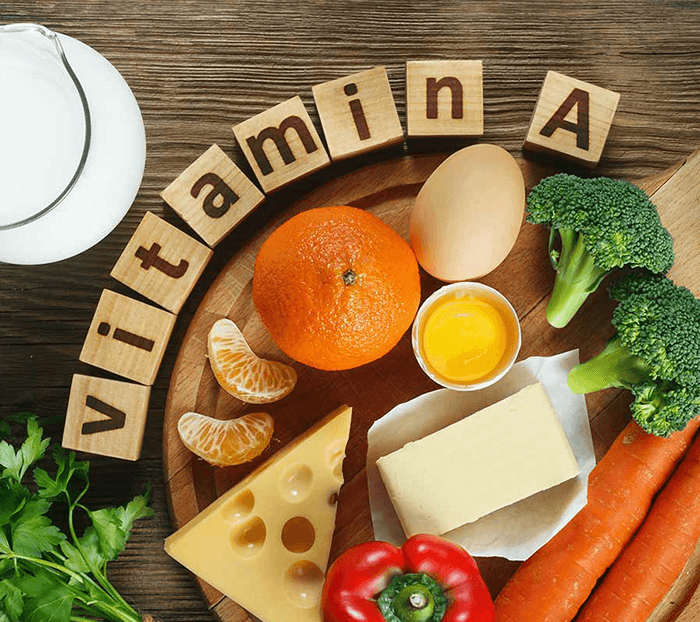- +033 2572 7171
- info@dhanvantary.com

4.5 Rating | 4500 Review

4.5 Rating | 4500 Review
Vitamin A is a fat-soluble vitamin that is primarily stored in the liver.
Vitamin A in the diet is categorized into two main types:
This type is sourced from animal products, including meat, fish, and dairy.

This type is derived from plant-based foods, particularly fruits and vegetables, with beta-carotene being the most prevalent form.
Vitamin A is accessible in supplement form, typically as beta-carotene, retinyl acetate, and retinyl palmitate. It can also be found in combinations of Pro-Vitamin A and preformed Vitamin A.
Vitamin A plays a crucial role in maintaining healthy skin, eyes, teeth, and skeletal tissues. Commonly referred to as retinol, this vitamin is essential for the production of pigments in the retina, contributing to good vision, especially in low-light conditions. Additionally, it may support reproductive health and breastfeeding.
Retinol, one of the most bioactive forms of Vitamin A, is present in animal liver, certain fortified foods, and whole milk. Carotenoids, which are dark pigments found in plant foods, number around 500, with beta-carotene being the most recognized.
Vitamin A can be obtained from various animal-based foods, including eggs, fortified milk, cream, meat, cheese, liver, kidney, and halibut fish oil. These sources are typically high in saturated fat and cholesterol, with the exception of skim milk that has been fortified with vitamin A.
Additionally, beneficial sources of this vitamin encompass cod liver oil, fortified breakfast cereals, and a variety of orange and yellow fruits and vegetables. Dark green leafy vegetables, such as broccoli and spinach, are also excellent sources of beta carotene. The intensity of the color in fruits and vegetables correlates with the concentration of beta carotene they contain.
All vegetable sources of beta carotene are devoid of both fat and cholesterol.
Individuals suffering from a deficiency in vitamin A face an increased risk of developing eye-related issues. These may include reversible night blindness, which can progress to xerophthalmia, a condition characterized by irreversible corneal damage.
A deficiency in vitamin A may also result in hyperkeratosis, a skin condition marked by dryness and scaling.
The necessary amount of vitamin A varies based on several factors, including age and gender. Additionally, considerations such as pregnancy and an individual's overall health play a significant role in determining the appropriate dosage.
To meet the daily requirements for essential vitamins, it is advisable to incorporate a variety of fruits, vegetables, legumes (such as dried beans), lentils, fortified dairy products, and whole grains into one's diet.
For males aged 14 years and older, a minimum intake of 900 mcg per day of vitamin A is recommended. In contrast, females in the same age group should aim for 700 mcg per day. Pregnant women require an increased intake of 770 mcg per day, while those who are breastfeeding need 1300 mcg per day.
